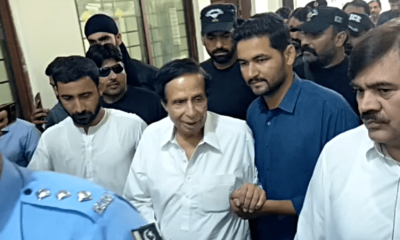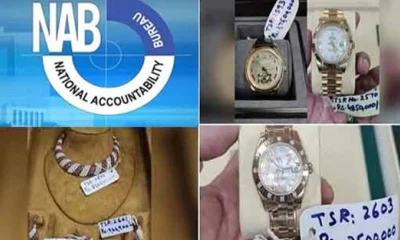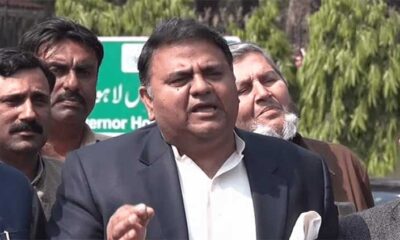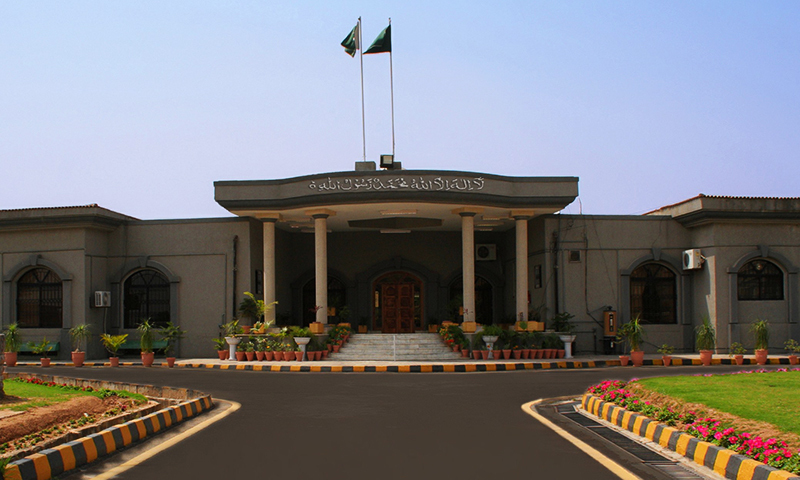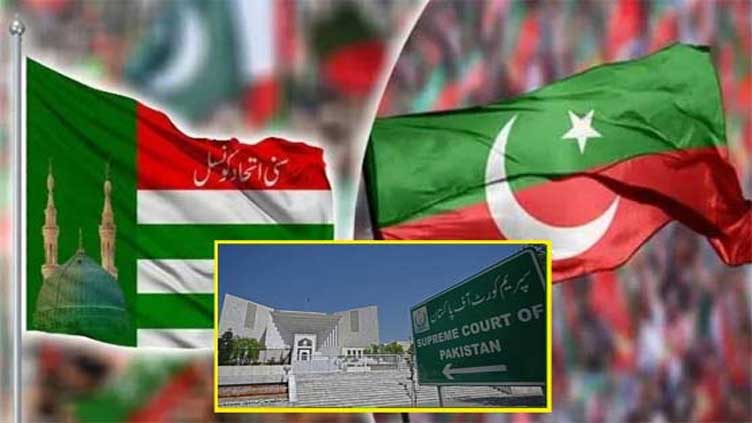ISLAMABAD: For the first time in the country’s judicial history, the Supreme Court’s full court — comprising all 15 judges of the apex court — allowed live telecast of proceedings on a set of petitions challenging the SC (Practice and Procedure) Act 2023 — the contentious law seeking to regulate suo motu powers of the country’s top judge.
Chief Justice of Pakistan (CJP) Qaez Faez Isa-led full court is currently conducting the hearing on the petitions being broadcast live on state television PTV.
The apex court declared the petitions seeking full court hearing on the petitions admissible. CJP Isa said that the decision to hold a full court hearing was taken in the full court meeting.
During the hearing, CJP Isa said arguments in the case will begin afresh because the new bench has been formed.
There were three applications to make a full court, which had been approved, CJP Isa observed.
Ahead of the hearing today, the Attorney General for Pakistan (AGP) Mansoor Usman Awan submitted the federal government’s response in the matter, requesting the court to reject the petitions against the Supreme Court Practice and Procedure Act.
“Petitions against acts of parliament are inadmissible. [Therefore,] the petitions against the Practice and Procedure Act should be dismissed,” the response submitted by the government contended.
Sources confirmed to Geo News that the decision was made in the full court meeting ahead of the proceedings.
To this end, five cameras were installed in the courtroom number one. Four cameras were installed in the visitors’ gallery and one was installed for the lawyers’ rostrum in front of the judges’ docks.
The full court was constituted by newly-appointed Chief Justice of Pakistan Qazi Faez Isa and includes Justice Sardar Tariq Masood, Justice Ijazul Ahsan, Justice Syed Mansoor Ali Shah, Justice Munib Akhtar, Justice Yahya Afridi, Justice Aminuddin Khan, Justice Sayyed Mazahar Ali Akbar Naqvi, Justice Jamal Khan Mandokhel, Justice Muhammad Ali Mazhar, Justice Ayesha A. Malik, Justice Athar Minallah, Justice Syed Hasan Azhar Rizvi, Justice Shahid Waheed and Justice Musarrat Hilali.
Prior to this, a full court meeting was held to consider live broadcasting of today’s proceedings and ponder over guidelines for effective hearing of cases. According to the sources, instructions for the live broadcast were issued yesterday (Sunday) — hours after Justice Isa took oath as the CJP.
Upon his arrival, CJP Isa — who reached the apex court in his personal car without protocol — said to the SC staff: “People come to the Supreme Court to solve their problems. Treat visitors like guests.”
He further said that the doors to justice should be kept open.
The hearing
There are nine applications, the CJP remarked at the outset of the hearing, requesting Advocate Khawaja Tariq Rahim to begin his arguments.
The CJP asked counsel Rahim to read the Act and “forget the past”.
Justice Ayesha asked the advocate what the effect of Section 5, which gives the right of appeal, would be if the law is sustained.
“Given that the full bench will hear the case. Would the appeal not be heard?”
“Parliament formed a committee of 3 judges to decide on the matters of public interest,” Rahim said while referring to the practice act.
To which Justice Mandokhail asked, “What does Article 191 of the Constitution say?
“The Constitution empowers Parliament to legislate,” Khawaja said, adding that the apex court had made its rules through the full court.
During the reading of the Act, Justice Mansoor remarked: “What I understand of your point is that if all this is done by the full court, then it is acceptable; If Parliament does this, then it is wrong.”
“Can the powers of the chief justice be nullified by legislation? Justice Musrat asked.
Upon this Justice Mandokhail asked if the legislation abolished the powers of the chief justice or the Supreme Court.
Are you satisfied if the chief justice has unlimited power to form a bench? Justice Athar questioned, while both CJP Isa and Justice Mazhar requested advocate Rahim to mention which section of the law the petitioner objected to and what article of the constitution the act is in conflict with.
“Can’t three judges sit and interpret the constitution?” he pointed out. However, the CJP responded that only the number is being discussed in the legislation not the competency of the judges.
As a number of pertinent questions regarding the power and authority of parliament were raised, the CJP reiterated that the advocate should take down the questions, and respond to them later.
“My colleagues are asking you good questions,” he said, asking the lawyer to take his time in responding to them.
Furthermore, the CJP chided counsel Rahim for referring to his “personal opinion” during the arguments and asked him to stick to the law.
“What is this ‘personal opinion’, please talk about the law,” the CJP said.
He further asked: “Whose right can be taken away by this law?”
Rahim contended that parliament had “interfered” with the rules of the Supreme Court.
Justice Athar asked: “Do you support what happened in the past?”
During the hearing, the CJP asked the advocate to comment on whether he believed the whole law to be wrong or a few clauses.
“According to Schedule 4 of the Federal Legislative List, the Supreme Court makes its own rules of practice and procedure,” the counsel replied.
Was this authority given to the Supreme Court in the Constitution or in the law? Justice Mandokhel asked.
Advocate Rahim said that he would respond to the queries later.
Justice Athar then asked: “Is it not within the purview of the parliament to make this law?”
Do not want absolute powers: CJP
During the hearing, the CJP remarked: “This court runs on the taxes of the people.”
If this law is struck down, the chief justice will benefit, the CJP said. However, he added: “A judge takes an oath to abide by the Constitution and the law.”
He further observed that as the top judge of the country, he did not want absolute authority. “Rs6.5 billion dollars were lost due to the court’s decision in the Reko Diq case, As chief justice, I do not want such authority,” the CJP remarked.
“I have not sworn to obey the judgments of the Supreme Court. I have taken oath to uphold the law and the Constitution, ” he said.
‘Law not against SC’
After a brief hiatus, Attorney General Mansoor Usman Awan appeared before the court and argued that the petitions were inadmissible.
He said that the law dealt with the powers of one office, not the entire judiciary, and aimed to bring “democratic transparency” to the institution.
He further contended that the law, au contraire to the claims of the petitioners, actually served in the public interest.
The AGP further argued that since no external check or institution was involved or imposed by the Act, it did not, in fact, curtail the power of the institution as a whole.
‘Mistake made in Zulfikar Ali Bhutto case’
During the course of proceedings, CJP Isa observed that there was also a public opinion that Article 184/3 was misused. The three-member bench nullified the Reko Diq agreement causing a loss of $6.5 billion to the country.
It was the opinion of the judges and it was not corrected, he added. The top judge admitted that they made mistakes. “Mistake was made in the Zulfikar Ali Bhutto’s case.”
“We have a huge ego. We endorsed martial law,” the CJP remarked, adding that the judges should admit that they also made omissions.
CJP Isa continued, “We take suo motu notices over every matter then whey can’t on legislation about ourselves.”
In Bhutto’s case, the review petition was also heard by the same judges who handed him the death penalty, the top judge stated. “Our ego should not be so huge that we do not admit our mistake.”
At this, Justice Minallah asked if the masses filed petitions after the endorsement of martial law and said, “We should also be held accountable.”
Top court rules are there to guide us: CJP Isa
During the hearing, CJP Isa asked AGP Awan whether he was liable to follow the 1980 rules of the Supreme Court.
“Rules are there to guide us not to limit us,” the top judge observed.
However, Justice Akhtar said that the judges are not bound by the SC Rules, adding that in such a situation how can the Supreme Court judges be bound by the Act being challenged in the court?
Following this, CJP Isa announced that they were taking a “short break” and would resume hearing of the case.
However, as the judges were leaving the courtroom PTI’s lawyer Aziz Bhandari came to the rostrum.
Justice Isa, while addressing Bhandari, asked, “Whose lawyer are you?” He replied, “PTI’s”. The top judge then assured him that they would listen to his arguments after recess.
Meanwhile, Justice Ahsan — on behalf of all the judges — conveyed good wishes to the attorney general who has to travel abroad today in connection with the Indus Water Treaty case.
At this, Justice Tariq observed: “The matter will end if we nullify the Act. But, if the law remains intact, then what will happen to the verdicts announced in the meantime?”
The attorney general replied that the “past and close transaction rule” may be applied in such cases. He maintained that the court could give protection to the verdicts made in the past. The attorney general apprised the court that he had completed his arguments in the case.
Case background
On April 13, an eight-member bench of the Supreme Court stayed the implementation of the law, which deals with the powers of the top judge in matters of public interest and seeks to limit the suo moto powers of the Chief Justice of Pakistan.
During the previous hearing in June, the similarities between the Supreme Court (Review of Judgments and Orders) Act 2023 — which relates to the right of appeal in suo motu cases — and the SC Practice and Procedure Act were discussed with Attorney General for Pakistan (AGP) Mansoor Usman Awan saying that parliament could look into “harmonising” the two laws.
The then-CJP — while he welcomed the proposal — said that the federal government should take the top court into consideration when making any legislation related to the judiciary.
The law
The law gave the power of taking sou motu notice to a three-member committee comprising senior judges including the chief justice. It further aimed to have transparent proceedings in the apex court and includes the right to appeal.
Regarding the constitution of benches, the Act stated that every cause, matter or appeal before the apex court would be heard and disposed of by a bench constituted by a committee comprising the CJP and the two senior-most judges.
It added that the decisions of the committee would be taken by a majority.
Regarding exercising the apex court’s original jurisdiction, the Act said that any matter invoking the use of Article 184(3) would first be placed before the committee.
On matters where the interpretation of the Constitution is required, the Act said the committee would compose a bench comprising no less than five apex court judges.
About appeals for any verdict by an apex court bench that exercised Article 184(3)‘s jurisdiction, the Act said that the appeal would lie within 30 days of the bench’s order to a larger SC bench. It added that the appeal would be fixed for hearing within a period not exceeding 14 days.
It added that this right of appeal would also extend retrospectively to those aggrieved persons against whom an order was made under Article 184(3) prior to the commencement of the SC (Practice and Procedure), Act 2023, on the condition that the appeal was filed within 30 days of the Act’s commencement.
The Act additionally said that a party would have the right to appoint its counsel of choice for filing a review application under Article 188 of the Constitution.
Furthermore, it states that an application pleading urgency or seeking interim relief, filed in a cause, appeal or matter, shall be fixed for hearing within 14 days from the date of its filing.
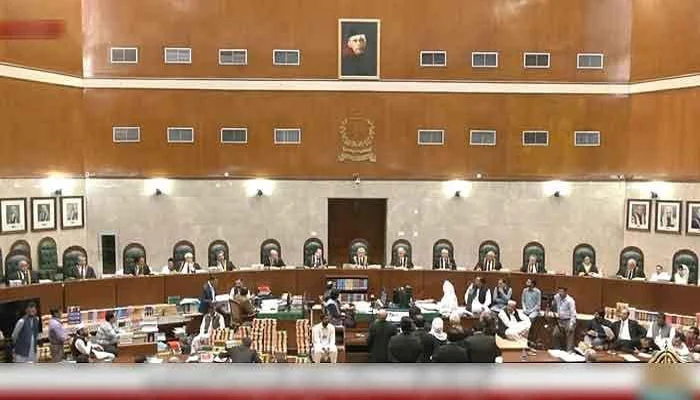

 Business4 hours ago
Business4 hours ago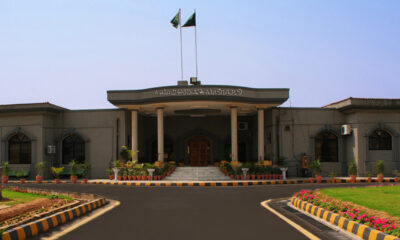
 Latest News4 hours ago
Latest News4 hours ago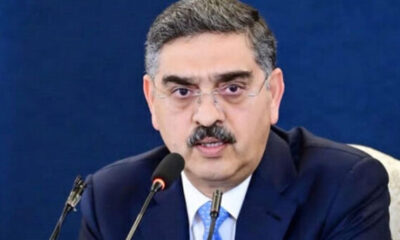
 Latest News4 hours ago
Latest News4 hours ago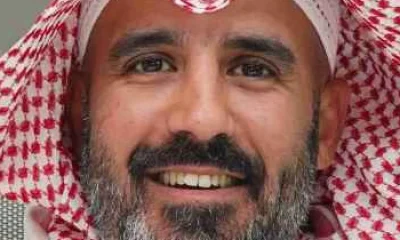
 Business4 hours ago
Business4 hours ago
 Latest News4 hours ago
Latest News4 hours ago
 Latest News4 hours ago
Latest News4 hours ago
 Latest News5 hours ago
Latest News5 hours ago
 Pakistan4 hours ago
Pakistan4 hours ago
